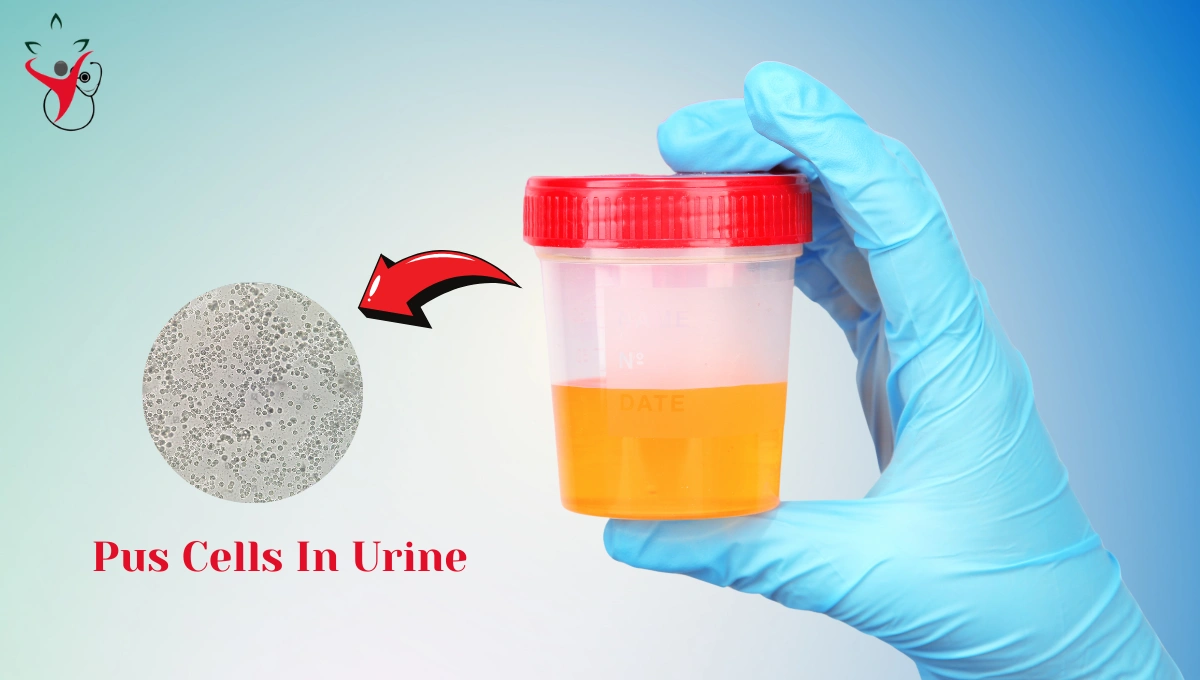Pus cells In Urine: Diagnosis, Treatment, Symptoms and Causes

Presence of Pus cells in urine is an indication of inflammation or infection in bladder, kidneys, urinary tract. The condition is called Pyuria. Pyuria is cloudy urine and the cloudiness is often caused by the presence of white blood cells. It is used for diagnosis of diseases. The normal range is of 0-5 pus cells per high power field (HPF). Presence of more than 5 pus cells per HPF is a sign of inflammation or infection.
Pus Cells In Urine – Possible Disease Diagnosis
Pus cells in urine is a diagnostic test. It is used to diagnose a variety of infections.
- It is used to diagnose the presence of Urinary Tract Infections caused by E. Coli.
- Kidney infection that is often caused by severe form of UTI
- Presence of sextually transmitted diseases such as Chlamydia and gonorrhea as they can lead to presence of pus cells in urine.
- Bladder infection
- Kidney stones as they can cause infection as well prostatitis (in Males) – Infection of the prostate gland leading to pus in urine.
- Tuberculosis and Autoimmune diseases.
High Number Of Pus Cells In Urine Symptoms
The following symptoms can indicate the presence of a high number of pus cells in the urine. These symptoms are –
- Cloudy or foul-smelling urine
- Burning sensation (dysuria) while urinating
- Frequent urge to urinate
- Pain in the lower abdomen or back
- Fever & chills (in case of kidney infection)
- Blood in urine (hematuria) in severe infections
Pus Cells In Urine Further Diagnostic Tests
The presence of pus cells in urine is an indication of the presence of inflammation and infection. Further tests that can be done to see find the cause of pus in urine are as follows –
- Urine Routine Test – Detects pus cells, RBCs, and bacteria.
- Urine Culture – Identifies the specific bacteria causing infection.
- Microscopic Examination – Checks for WBCs and microorganisms.
- Blood Tests (CBC, CRP) – Identifies infection or inflammation.
- Ultrasound/CT Scan – If kidney stones or structural issues are suspected.
Treatment For Pus In Urine Based On Cause
Pus in Urine is a diagnostic test to detect infection and inflammation. The treatment will depend on the infection. The treatments based on infection is as follows,
- Bacterial Infection and UTIs – For this type of infection, a doctor may give antibiotics such as Ofloxacin, Ciprofloxacin, Nitrofurantoin, or Amoxicillin-Clavulanate. Along with this it is necessary to drink plenty of water to flush out the bacteria.
- Kidney Infections – A doctor may give a strong antibiotic or hospitalization may be needed.
- STIs – Antibiotics specific to the infection may be needed.
- Kidney Stones – The treatment for this may depend on the size of kidney stones. Small kidney stones can be naturally evacuated through urine by drinking a lot of water and pain management with the help of painkillers. Larger stones may be removed through surgery.
- In case of autoimmune diseases it is usually steroids or immunosuppressants that are prescribed.
Home Remedies To Prevent Pus In Urine
Some of the things that can be done to prevent pus in urine are as follows –
- Drinking plenty of water
- Cranberry juice may help
- Good hygiene
- Avoid holding urine
Pus In Urine When to See Doctor
A person needs to see a doctor if they are experiencing the following along with pus in urine. These symptoms are –
Fever & chills
- Severe pain in the back or lower abdomen
- Blood in urine
- Persistent cloudy urine or bad smell
Frequently Asked Questions (FAQs)
Q1. What if pus cells are high in urine?
Ans. High number of pus cells in Urine is an indication of infection and inflammation.
Q2. What is the normal range for pus cells in urine?
Ans. 0-5 pus cells per high power field (HPF)
Q3. How to cure pus cells in urine naturally?
Ans. Plenty of water and hydration is the key, however if you are experiencing other symptoms such as fever and chills , it is best to consult a doctor.
Disclaimer
The information on this blog is strictly for informational purposes. It is not a substitute for professional medical advice. Please consult your doctor before taking any medication.
Read More About



